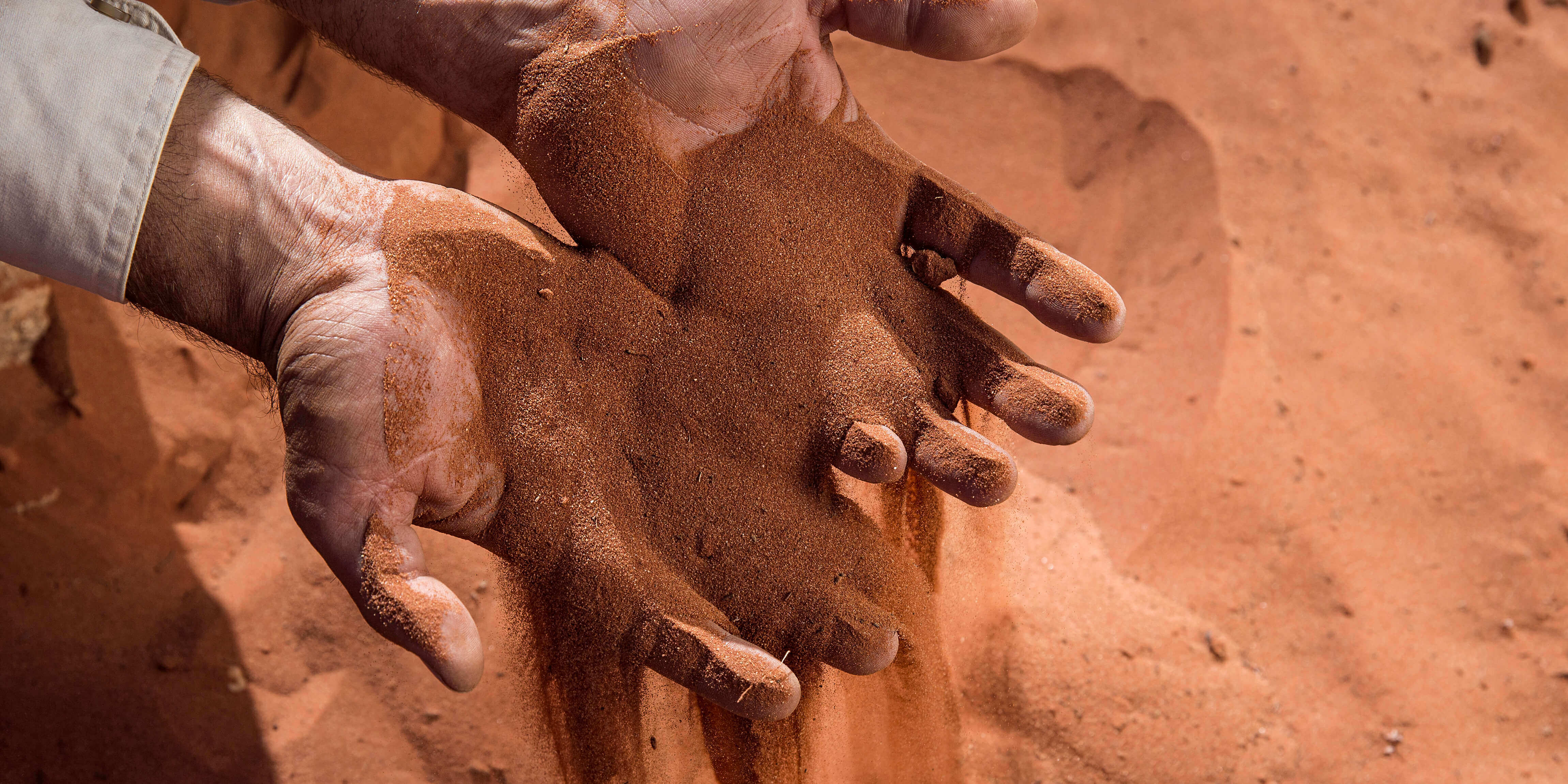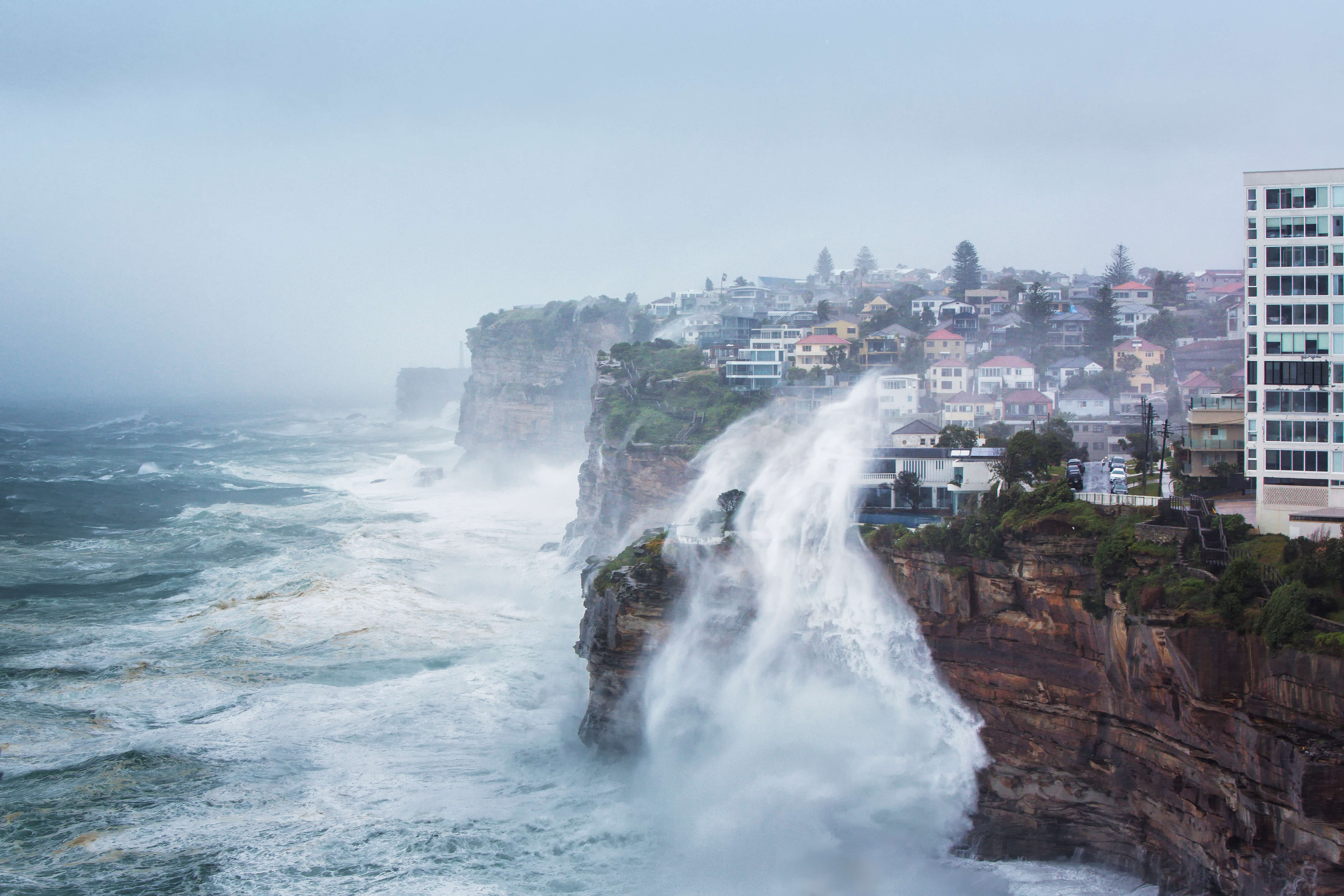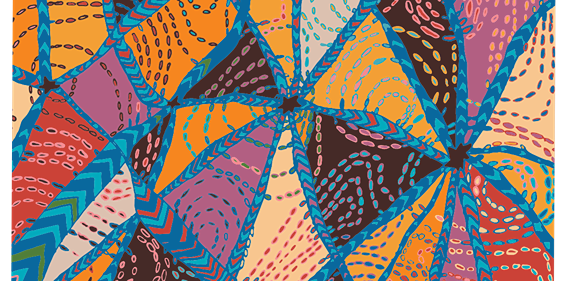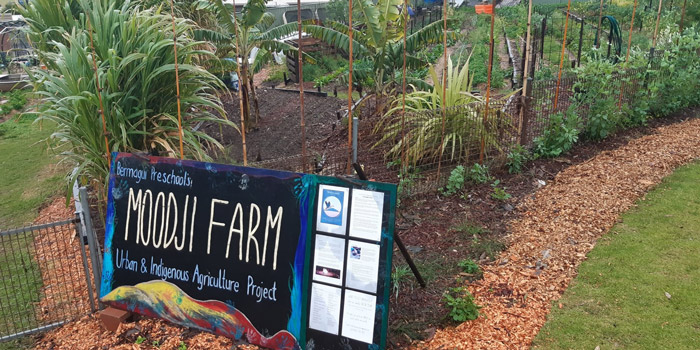Climate change is a Dreaming story that we have co-created, Gamilaroi woman Paris Norton told the AdaptNSW Forum 2022.
Instead of looking at climate and the way it is changing as being separate to me… [when] I understand climate for who she is and understand Country for who she is, I can take some actions.
Paris Norton, Scientist, NSW Department of Planning and Environment
Climate change is more than an environmental phenomenon. As part of the narrative of human influence on the planet, climate change is a new story passed down through the Dreaming. Understanding our role in that story can help us to shape the ending.
In a session called ‘Enabling Aboriginal wisdom in climate change planning’, moderator Mal Ridges, NSW Department of Planning and Environment Team Leader of Culture Science, led a deep discussion with three First Nations leaders.
“Climate change adaptation isn't just an adaptation of what is going on around us. It is an adaptation within ourselves as well,” Mal said.
Rhonda Ashby is a Gamilaraay and Yuwaalaraay descendant and representatives of the Narran Lakes Joint Management Committee. Rhonda grew up along the Namoi River, which stretches 350 kilometres from Bendemeer in the east to Walgett in the west.
As a child, Rhonda collected mussels from the river with her feet. “Those waters were clear. We could see the bottom. And there were certain parts of the river where we could swim and play.”
The broader Narran Lake Nature Reserve, protected under the RAMSAR Convention, is a habitat for hundreds of bird species and was a sacred meeting place for Aboriginal people for thousands of years, she noted.
Since the Namoi River ran dry during drought in 2018, water quality has been poor and residents of the town of Walgett have been forced to rely on salty bore water.
“It is really sad. My children and grandchildren are not going to be able to see how beautiful those rivers were,” Rhonda said.
"Our health is not good. Our Country is not good. We need to be healthy for our Country. We need to engage in Country for our own wellbeing. And we need new people to work with us and to listen to our stories.”
Nature’s message
Jamie Tarrant, a Worimi man from the Port Stephens area, has also observed changes on Country.
As a Traditional Owner and Chair of the Worimi Conservation Lands Board of Management, Jamie is a custodian of 4,200 hectares, 1,800 of which are forest, as well as the longest moving sand dunes in the southern hemisphere.
Recent flooding events have had a catastrophic effect on Country, he noted during the session. “Our park faces south. When we’ve had these floods, we've been cleaning up debris for weeks on end. Telegraph poles washed onto the beaches. Chemical containers. And everything else.”
Intense winds and high waves generated by more extreme storm events have led to beach erosion. Wetlands are inundated with salt water, vegetation dies, and precious shell middens used for ceremony are exposed, he said.
Seasons that ebbed and flowed for millennia have changed in a few short years. “The mullet is a huge thing for our people. It's like the start of the food chain.” Mullet season once started in winter, with the “high content of fat” from the fish a lifeline to “get the mob through the winter in tough times”. The most recent floods “flushed out” the mullet before winter. “If we were relying on country to provide for us, the seasons have now changed.”
Our culture and our values are for everybody. You can bring a seed here from anywhere in the world and it will grow. That's what our culture does. It teaches you how to belong... And belonging teaches you to love in a way that is sustainable.
Paris Norton, Scientist, NSW Department of Planning and Environment
Thriving, not just surviving
Australians can no longer ignore the impacts of climate change – but reframing our loss can help us to adapt, survive and thrive.
Paris Norton suggested the floods that “ripped through” New South Wales in 2022, could be an inflection point. “Instead of asking ‘How do I stop that?’ I ask her [Mother Earth]: ‘What is wrong?’.”
It is not about “fixing Mother Earth,” Paris said. “Because she knows what she's doing… She reflects back at us the things that we need to learn.”
Climate change is, therefore, an opportunity for Australians to re-examine their connection to Country. “What is my relationship with place? How are my values effecting it? And how can I operate within a system of love for Country? Love for Country first, and love for me after."
Climate change is a “story” or a “Dreaming,” Paris added. “Climate is telling us the Dreaming that we have co-created.”
Mal Ridges also had a clear message of hope. As an archaeologist, he has studied a time when Sydney Harbour was dry; “there were wombats the size of an SUV walking around and there were glaciers up on the mountains”.
“Aboriginal people have been through climate change before,” he said. “They went through it and came out the other side... We are all talking about the worst day. Not the day that we turn it around.”
How did First Nations people survive and thrive? “They had their values right. Get that right and you live with Country right.”
The Narran Lakes Joint Management Committee and the Worimi Lands Conservation Board are collaborating with the NSW Government on a project to maintain healthy cultures in a changing climate. Read more about this project.
And join two days of discovery, collaboration and innovation from 4-5 December at the 2023 AdaptNSW Forum.
For more content, check out the AdaptNSW Forum 2022 session summaries.
Articles
The importance of the land to wellbeing cannot be understated, which is why strategies to combat and manage the impacts of climate change are crucial. Aboriginal people have been using generational knowledge of land and sea management in response to changing climates over thousands of years.
Learn how Moodji Farm brings intergenerational collaboration to address climate change, support Indigenous heritage and build social resilience in Bermagui.



